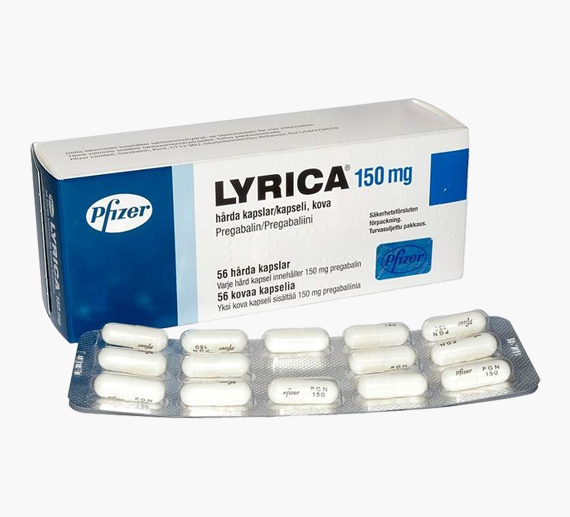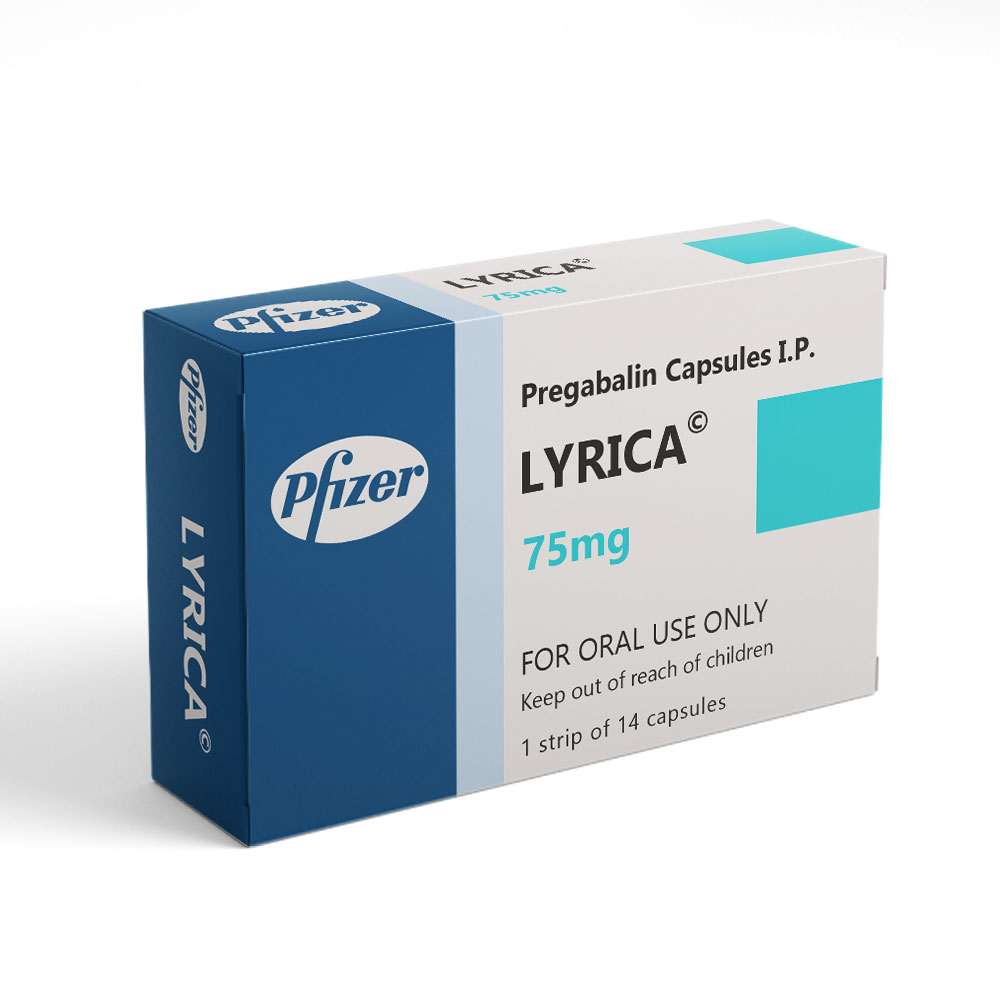Description
Lyrica (pregabalin) is a prescription medication recognized for its anticonvulsant and analgesic properties. It is widely used in the management of neuropathic pain, generalized anxiety disorder (GAD), and as an adjunctive therapy for partial seizures in adults. Lyrica is formulated to provide relief from chronic pain and to help stabilize neurological conditions, thereby improving the quality of life for patients.
Indications and Uses
Lyrica is indicated for the following medical conditions:
- Treatment of Neuropathic Pain:
Peripheral Neuropathic Pain: Including conditions such as postherpetic neuralgia and diabetic neuropathy, where nerve damage results in chronic pain.
Central Neuropathic Pain: Pain resulting from central nervous system damage, which may occur in conditions like spinal cord injury or multiple sclerosis.
- Generalized Anxiety Disorder (GAD):
Anxiety Management: Lyrica helps in reducing symptoms of GAD, such as excessive anxiety and worry, restlessness, and tension.
- Fibromyalgia:
Pain and Symptom Relief: Lyrica is effective in managing the widespread pain associated with fibromyalgia, along with associated symptoms such as fatigue, sleep disturbances, and cognitive difficulties.
- Adjunctive Therapy for Partial Seizures:
Seizure Control: When used in combination with other anticonvulsants, Lyrica aids in the management of partial seizures with or without secondary generalization in adults.
Mechanism of Action
Pregabalin, the active ingredient in Lyrica, binds to the alpha-2-delta subunit of voltage-gated calcium channels in the central nervous system. This action reduces the release of several neurotransmitters, including glutamate, norepinephrine, and substance P, which transmit pain and seizure activity. By modulating these neurotransmitters, Lyrica helps alleviate pain and control seizures.
Dosage and Administration
- Neuropathic Pain and Fibromyalgia: The usual starting dose is 150 mg daily, divided into two or three doses. Based on efficacy and tolerability, the dose may be increased to 300-600 mg daily.
- Generalized Anxiety Disorder: The recommended dose ranges from 150 mg to 600 mg per day, divided into two or three doses.
- Partial Seizures: The starting dose is typically 150 mg per day, which can be increased to a maximum of 600 mg per day based on clinical response and tolerability.
Note: Dosage adjustments may be necessary for patients with renal impairment.
Side Effects and Precautions
- Common Side Effects: These include dizziness, drowsiness, dry mouth, edema, blurred vision, weight gain, and difficulty concentrating.
- Serious Risks: Potential serious side effects can include allergic reactions, severe muscle pain or weakness, vision changes, and symptoms of heart failure.
Precautions:
Hypersensitivity: Contraindicated in patients with known hypersensitivity to pregabalin or excipients.
Renal Impairment: Dose adjustments are required for patients with impaired kidney function.
CNS Effects: Caution is advised when operating machinery or driving due to potential dizziness and drowsiness.
Suicidal Thoughts: Monitor for any changes in mood or behavior, especially in patients with a history of depression or suicidal thoughts.
Storage and Handling
- Storage Conditions: Store Lyrica capsules at room temperature, away from moisture and heat. Keep out of reach of children.
- Handling Instructions: To maintain the integrity of the medication, ensure the capsules are taken as prescribed, without crushing or chewing.
Lyrica (pregabalin) is a versatile medication used in the treatment of neuropathic pain, generalized anxiety disorder, fibromyalgia, and partial seizures in adults. Its ability to modulate neurotransmitter activity provides significant relief from pain and seizures, making it a vital therapeutic option in these conditions. Always use Lyrica under the supervision and prescription of a qualified healthcare provider to ensure its safe and effective use.











Reviews
There are no reviews yet.